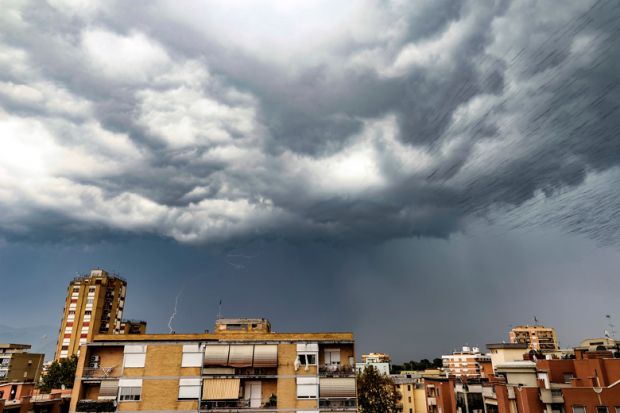The new chair of the representative body for university estates has warned his members that they are in a “volatile situation” with regard to future investment in facilities.
Trevor Humphreys, who took over as chair of the Association of University Directors of Estates (AUDE) during their annual conference at the beginning of April, said that universities could face a “perfect storm” in a period of increased competition for international and domestic students, and uncertainty over income. This would have a “direct financial impact” on all aspects of universities.
“We’re all competing in the same sort of pond for international students particularly, and there’s a concern about the sustainability of some of those markets. If we don’t recruit the right students, it has a direct financial impact,” Mr Humphreys, who is director of estates and facilities at the University of Surrey, told Times Higher Education.
He said that there was “still capital being spent and raised, which is clearly great for the sector” but “the level to which that will be maintained over the next three to five years is uncertain; we need to be mindful that at some point that dynamic may change”.
“That money is predominantly coming from the private sector from placements and bonds, and therefore the sector is still seen as a safe bet for investment. The state to which that remains is yet to be seen.”
Mr Humphreys added that many universities had invested heavily in their estates over the past 10 to 15 years, and that at some point those buildings would need to be maintained. This lead to questions of whether they had made adequate provision to do so.
Despite the uncertain landscape, he noted that investment in estates was still vital and institutions that “don’t appreciate how integral the estate is to attracting and retaining students and staff” do so “at their peril”.
Mr Humphreys said that he wanted to ensure his members worked well with senior university management in organising their estates in a way that is “flexible and adaptable” and highlighted the influence technology was having on debates about investment.
“The debate continues as to the extent to which the estate becomes a virtual one and [whether] the physical estate is dead. There are no rumblings I hear that the physical estate is no more,” he said. “Clearly, we have to make sure we have an estate that’s efficient and utilisation is high, [but] what we’re seeing is a blended need.”
Register to continue
Why register?
- Registration is free and only takes a moment
- Once registered, you can read 3 articles a month
- Sign up for our newsletter
Subscribe
Or subscribe for unlimited access to:
- Unlimited access to news, views, insights & reviews
- Digital editions
- Digital access to THE’s university and college rankings analysis
Already registered or a current subscriber? Login







